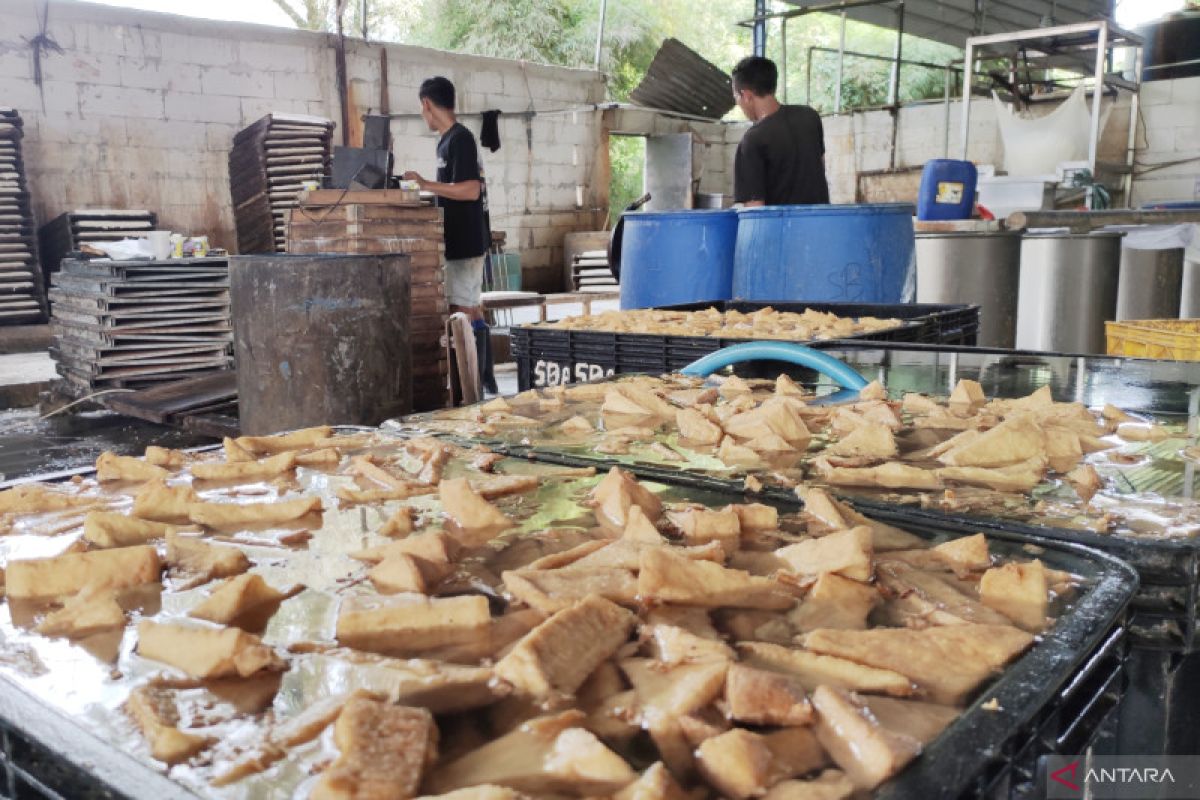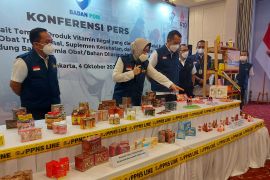“The utilization of the dangerous substance of formaldehyde in food production (by the factories) is a major finding," BPOM Head Penny K. Lukito, accompanied by officials from West Java Police and the Bogor district authority, said in a press conference at the factory in Waru Kaum Village on Friday.
From the two tofu factories, which have a combined production capacity of 120 million pieces of tofu per month, the food control agency seized 60 kilograms of liquid formaldehyde and 38 kilograms of formaldehyde powder.
The BPOM and local police also confiscated at least 1,500 units of finished products that were ready for market distribution and suspended operations at the factories, she informed.
The owners of the two factories, identified by their initials as S, aged 35, and N, aged 45, were named suspects in the case, she added.
"According to our food safety law, (the suspects) could be charged with five years of prison or Rp10-billion (US$690 thousand) fine for using a dangerous substance as a food ingredient," Lukito said.
The BPOM head then expressed her disappointment that factories are continuing to use dangerous substances in food despite the monitoring of food factories being intensified in ten provinces since earlier this year.
She highlighted that the government has banned the use of formaldehyde in food production since 2016 and allowed the substance to be used only in non-food production sectors, such as wood production and as an embalming agent.
Since the prohibition, the government has instructed formaldehyde producers to add a bitter substance to formaldehyde products to prevent it from being consumed and used in food production, she noted.
She said she suspected that the two factories were using formaldehyde substances that were not mixed with the bitter substance.
"Those who seek only profit (commit) food safety crimes. (They) use other (formaldehyde) products in solid or fine powder forms that (can be used) without making it liquid first. Those products indeed have no bitter substance. I am very disappointed, and I deplore this behavior," Lukito remarked.
Related news: Producers to make smaller-sized tempehs following soybean price hike
Related news: Tofu, tempe prices to increase: Indonesian trade ministry
Translator: M Fikri S, Nabil Ihsan
Editor: Rahmad Nasution
Copyright © ANTARA 2022












